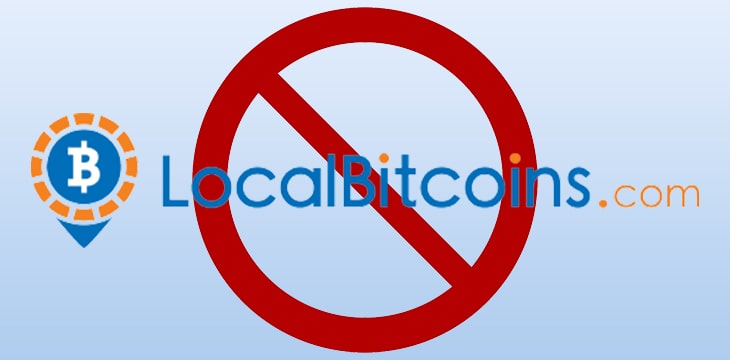|
Getting your Trinity Audio player ready...
|
The Russian government has blocked access to peer-to-peer BTC trading platform LocalBitcoins, claiming the site spreads illegal information to the public.
The Russian telecoms and mass media regulator, popularly known as Roskomnadzor, banned the trading platform recently according to local news sources. Roskomnadzor has a history with LocalBitcoins, having first restricted access to the P2P platform four years ago. In July 2020, the regulator once again indicated that it intended on blocking access to the site, claiming that LocalBitcoins could be spreading illegal information to the public.
The ban will only add to the confusion in the Russian digital currency community. Owning digital currencies in Russia isn’t illegal and citizens are allowed to buy and sell them at will. However, paying with digital currencies is outlawed as they are not recognized as legal tender.
However, in an era where VPNs have become quite common, the ban may not be as effective as the regulator would want. For Russians, VPNs are especially critical given the constant restrictions imposed by the regulator. One of the biggest victims of the restrictions has been Telegram, the popular encrypted messaging service that has over the years refused to hand the government access to its users’ accounts.
LocalBitcoins users in Russia are already turning to VPNs to mask their location. As Decrypt reports, the trading activity on LocalBitcoins.net, the Russian version of the P2P trading platform, has not been affected by the ban.
Russia continues to be one of the world’s largest players in the P2P digital currency market. As per Coin Dance data, Russians traded $585 million worth of digital currencies on LocalBitcoins alone in the week ending October 10. As such, the ban by the Russian regulator could have far-reaching effects across the world.
Roskomnadzor recently blacklisted Binance, claiming that the exchange contained information on its website that has been prohibited from distribution in Russia. Binance was just one of several digital currency sites that the regulator has blocked in the recent past. In September, it banned BestChange.ru, coinpost.ru, cryptorussia.ru and more, claiming they violated the law that prohibits the use of digital currencies as a means of payment.
Watch the CoinGeek Live Day 1 panel, Regulation of Digital Assets & Digital Asset Businesses.
https://youtu.be/FAEoXeN0b8M?t=18763

 02-20-2026
02-20-2026 




